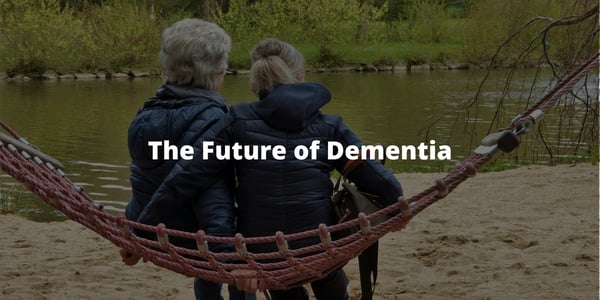Patience is a virtue that is often praised, yet challenging to practice. In a world that values...
10 Ways You're Accidentally Causing Faster Aging
We all want to age gracefully. However, believe it or not, there are many ways we speed up the aging process without even realizing it. In this blog post, we will discuss some of the most common ways that people age prematurely. By becoming aware of these things, you can reduce their impact on your life. Let's get started!
10 Things That Speed Up Aging
Smoking
Smoking not only affects your lungs and respiratory system, but it can also accelerate the aging process of your skin. This is because smoking reduces the amount of oxygen that reaches your skin cells, leading to wrinkles and a loss of elasticity. Therefore, quitting smoking is one of the best things you can do for your skin and overall health and longevity. Click here to learn about tips for quitting bad habits!
Not Wearing Sunscreen When You Go Out
People usually only think about sunscreen when they're headed to the beach, but it's important to wear it every day you are exposed to the sun. UV rays can cause damage to your skin and speed up the aging process. Make sure you apply broad-spectrum sunscreen with at least SPF 30 every morning before heading out for the day.
Watching Too Much TV
Spending too much time sitting and staring at a screen, whether watching television or browsing on our phones, can cause physical strain on the body. Not only does this lack of movement contribute to weight gain and potential health problems, but it also causes the muscles in our neck and back to become tense and stiff. This tension can lead to chronic headaches, poor posture, and ultimately accelerated aging of the spine and joints. Additionally, too much screen time can lead to disrupted sleep patterns and increased stress, which can contribute to premature aging. Therefore, limiting your screen time and staying active is important to slow down the aging process.
Not Getting Regular Check-Ups and Preventive Care from Your Doctor
Regular check-ups and preventive care allow your doctor to catch any potential health issues early on before they have a chance to escalate and accelerate the aging process. Skipping these appointments can lead to undetected or untreated conditions, such as high blood pressure or diabetes, which can significantly impact your long-term health and well-being. It is also important to discuss any concerns or symptoms with your doctor during these visits. They may be able to provide advice on preventive measures or lifestyle changes that can slow down the aging process. Don't wait until it's too late. Schedule regular check-ups and preventive care appointments with your doctor.
Not Getting Enough Sleep
Not getting enough sleep can have a negative impact on your body and appearance, as it causes increased inflammation and stress hormone levels. This can lead to accelerated aging, such as the development of wrinkles and dark circles under the eyes. Therefore, it is important to prioritize getting at least 7-9 hours of sleep each night for overall health and to slow the aging process.
Not Keeping Yourself Hydrated
When we don't drink enough water, our cells become dehydrated and can't function properly. This leads to wrinkles and dry, sagging skin. It can also contribute to fatigue and poor organ function. Therefore, it is recommended to drink eight glasses of water a day to keep your body hydrated and youthful.
Chronic Stress and Not Managing It Effectively
When we are constantly in a state of stress, our bodies release the hormone cortisol. This hormone can cause inflammation and damage to cells, speeding up the aging process. Chronic stress is also linked to health problems such as high blood pressure and a weakened immune system. Therefore, it is important to manage stress by finding healthy coping mechanisms and taking time for self-care. Exercise, meditation, and spending time with loved ones can all help reduce stress levels.
Poor Diet
Consuming too much sugar, processed foods, and saturated fats can lead to inflammation in the body and accelerate aging. Making healthy food choices such as incorporating more fruits and vegetables, whole grains, and lean protein can help keep your body functioning at its best for longer. It is also important to stay hydrated and limit alcohol intake, as these can further contribute to inflammation and aging.
Not Exercising Regularly
Regular exercise helps keep our muscles and bones strong, boosts our immune system, increases metabolism, and improves cardiovascular health. Without regular exercise, our bodies begin to lose muscle mass and bone density, leading to a decrease in overall physical function. This loss of function can accelerate the aging process and increase the risk of age-related diseases such as osteoporosis and heart disease. Additionally, a sedentary lifestyle can lead to weight gain, which has also been linked to accelerated aging. So make sure to include regular physical activity in your daily routine to keep your body strong and slow down the aging process. Start by finding an exercise you enjoy, and then aim for at least 30 minutes of exercise every day.
Not Moisturizing Your Skin
One way you may be accidentally speeding up aging is by not properly moisturizing your skin. When the skin becomes dry, it can lead to the development of fine lines and wrinkles. In addition, moisturizing helps keep the skin barrier strong and protects against environmental damage. Make sure to use a moisturizer daily and reapply as needed throughout the day. Also, don't forget to moisturize your neck and chest, as these areas are often neglected but can show signs of aging, just like the face. Take care of your skin now to prevent premature aging in the future.
While aging is a natural process, certain habits and lifestyle choices can lead to accelerated aging. By making changes such as incorporating exercise, managing stress, and maintaining a healthy diet, you can slow down the aging process and maintain a youthful appearance for longer. Don't wait until it's too late - start taking care of yourself now to prevent premature aging.







